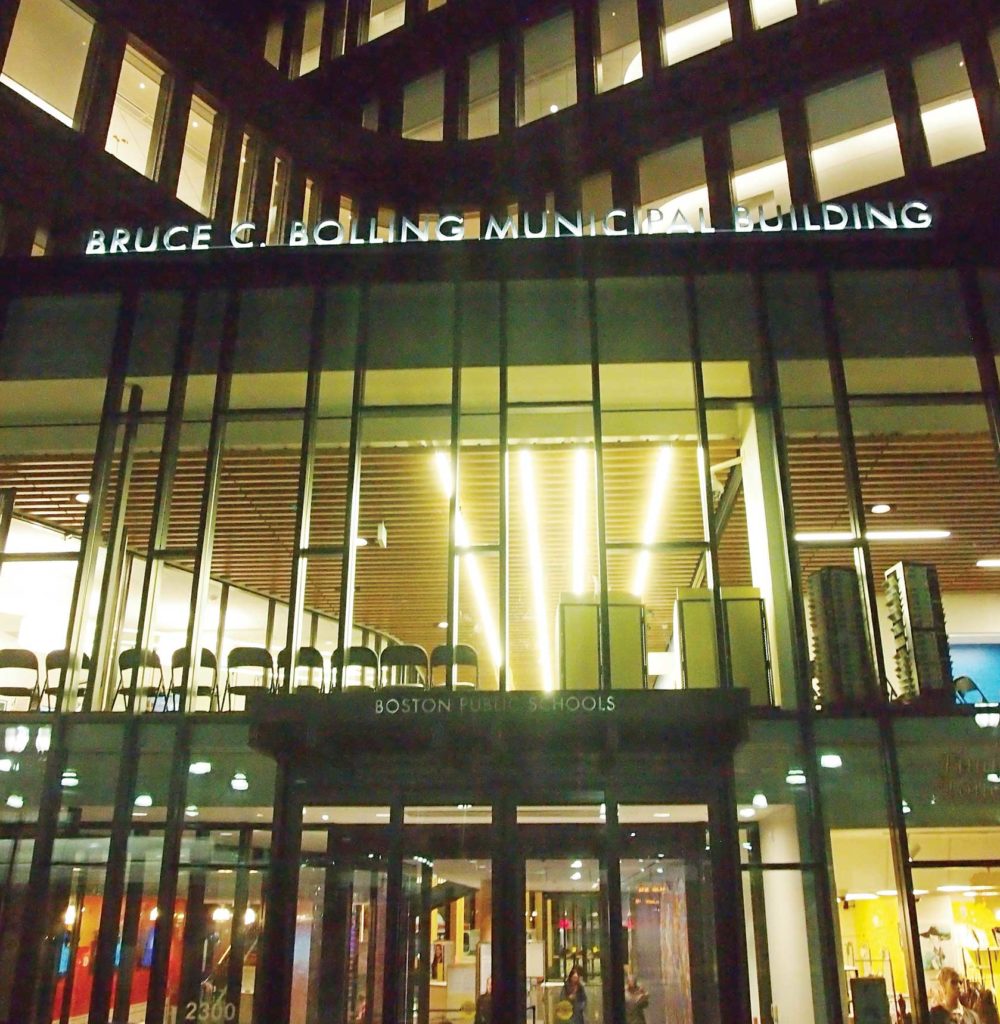Debate over school committee student vote
Proponents say student voice should carry equal weight

By now you’ve heard that Mayor Michelle Wu vetoed the proposal to restore an elected school committee and reverse Boston’s position as an outlier with the only mayor-appointed school committee in the commonwealth.
What you may not know: She recently signed a separate piece of legislation that would make Boston an outlier in a new, different way by giving voting power to the school committee’s student representatives. The Boston School Committee currently has one non-voting student representative. The measure now headed to the State House would add spots for two voting student representatives and an alternate. The Boston Student Advisory Council would elect the positions.
It’s an under-the-radar aspect of the school committee scuffle, but one that those at the intersection of youth and civic engagement say could have far-reaching implications if it clears the now daunting Beacon Hill process.
Currently, Boston School Committee student reps — those that represent the interests of stakeholders with the greatest interest in Boston Public Schools — lack a say in the policies and decisions that directly impact BPS’ 49,000 or so students.
Kei Kawashima-Ginsberg, director at the Tufts-based, nonpartisan Center for Information Research & Research on Civic Learning and Engagement (CIRCLE), says that’s an issue.
“Student voice is essential. … Young people have the most immediate, current and deepest knowledge about what’s happening in their own classroom and in their curriculum. And nobody else can comment about what the actual student experiences are,” she told GBH News. “It’s the kind of expertise the school board needs to be able to make decisions together with young people that actually reflect student views, experience and opinions.”
Advocates like Kawashima-Ginsberg see student suffrage as a preferred way to promote civic engagement and do it while the youth are still in school, able to engage with their peers as well as adults.
But Glenn Koocher, executive director of the Massachusetts Association of School Committees, said Boston could be “opening up a can of worms” by allowing students to have a vote because of their stakeholder status.
“Then the union president is going to want to vote, then the special education PAC is going to want to vote, and everybody is going to have a legitimate claim to demanding a voice at the table,” Koocher told GBH News. “So at some point you’ve got to default to the traditional rules of democracy and say if you’re elected, you get a seat at the table and a vote.”
In addition to the slippery stakeholder slope, Koocher said there’s “a legitimate question regarding how students become fully and responsibly aware of their obligations to think critically and fairly.”
To be clear, the Massachusetts Association of School Committees generally abstains from taking sides on school committee governance questions in honor of local control.
“We support the right of the community to make its own decision about how to elect its local elected officials,” Koocher said. “So whatever Boston determines is for Boston and not for us” to determine.
The Boston School Committee, through a BPS communications official, declined to comment.
The matter now moves to the Legislature, which, as it often does, will determine what Boston can and cannot do.
Saraya Wintersmith covers Boston City Hall for GBH News






